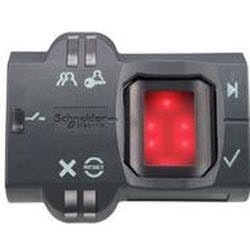Biometric Switch Enables Fingerprint Recognition Technology
Schneider Electric recently announced it is launching the world’s first industrial switch to use biometric fingerprint-recognition technology in order to grant employee access to sensitive areas and machine functions. Schneider Electric’s Harmony Biometric Switch is the first fingerprint-reading device designed specifically for industrial environments where security is highly critical to everyday functions, but manufacturing conditions require security systems to be "industrially hardened."
"Until now, this type of technology has not been available for use in industrial settings due to the often extreme conditions found in the plant," says Selin Yilmaz, push button product manager for Schneider Electric. "Every plant manager knows the safety and operational consequences of unauthorized access: it can halt production, damage products being manufactured or disrupt your supply chain – and pose risk to employees, engineers and millions of dollars’ worth of equipment. This biometric technology, designed for plant conditions, can provide companies with more effective protection, while saving time and money and increasing productivity."
The Harmony Biometric Switch reads fingerprint patterns to verify that someone is authorized to access sensitive areas and machine functions through an anonymous process in which fingerprints serve only to authorize access, not confirm an individual’s identity. Fingerprint readers have been shown to be more effective and efficient than other security systems, and they can also save money long-term. Fingerprint readers– unlike passwords, swipe cards or pin numbers – can’t be lost, stolen, borrowed, guessed or forgotten. Industry experts estimate that up to 40 percent of all calls to IT help desks stem from password problems, and the average cost of each call ranges from $10 to $31.
